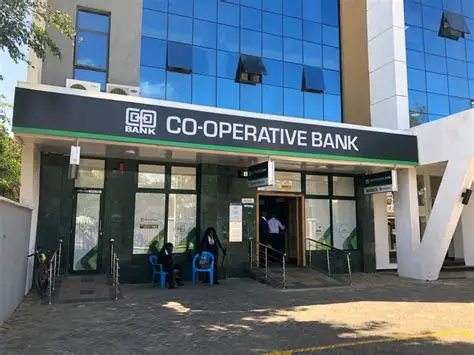SanlamAllianz Kenya is targeting a top-three position in the local insurance market following its rebrand from Sanlam Kenya Plc.
Data from the Insurance Regulatory Authority (IRA) shows Jubilee Insurance, CIC Insurance Group and Britam currently dominate Kenya’s insurance sector.
The rebrand follows the creation of a joint venture between Sanlam and...
Mars Wrigley has expanded its Athi River plant with a new sugar-free gum production line, marking a major shift toward local manufacturing as the confectioner commits an additional Sh4.3 billion ($33 million) to its Kenya operations over the next three years.
The investment builds on the more than $70 million the company has already...
News
Kenya tightens digital insurance rules as Africa moves towards harmonised insurtech regulation
Staff Writer -
Kenya’s Insurance Regulatory Authority is preparing new rules to strengthen cybersecurity, data protection and oversight of digital insurance services, as regulators across Africa push for more coordinated insurtech regulation.
This comes at a time that the regulator is challenging more insurance companies to ride on technology to expand insurance access for low-income groups, including...
News
Kaspersky and VDC Research reveal over $18B in potential losses from ransomware attacks on the global manufacturing industry in 2025
Staff Writer -
Kaspersky (www.Kaspersky.co.za) in collaboration with VDC Research announced that in the first three quarters of 2025 ransomware attacks on manufacturing organisations could have generated over $18 billion in losses. This figure reflects just the direct cost of an idle workforce during downtime, with overall operational and financial impacts far exceeding this amount. Estimations were made across APAC,...
News
The AFRICA24 Group offers you: International Forum of Dynamic Entrepreneurial Women (FIED)
Staff Writer -
From 25 to 30 November 2025, the AFRICA24 Group (https://Africa24TV.com) will provide exceptional coverage of the 14th edition of the International Forum for Dynamic Entrepreneurial Women (FIED), under the theme ‘The role and impact of women on industrialisation and the promotion of local products’ and under the High Patronage of Captain Ibrahim Traoré, President of the Transition of Burkina...
Cooperative Bank of South Sudan has tapped the United Nations Development Programme (UNDP) in what experts are calling one of the most ambitious attempts yet to bring modern finance into the country’s rural economy.
The deal, part of the multi-donor Rural Enterprise and Agricultural Development project, aims to pull thousands of small farmers, women entrepreneurs and youth-run agribusinesses into...
News
Meet the Top 10 Heroes: Africa’s Business Heroes Gears for the 7th ABH Summit and Grand Finale in Kigali
Staff Writer -
The Africa’s Business Heroes (ABH) (https://AfricaBusinessHeroes.org/) Prize Competition, a flagship philanthropic initiative of Alibaba Philanthropy, will host the 7th ABH Summit and Grand Finale in Kigali, Rwanda, on 12–13 December 2025 in partnership with the Rwanda Development Board (RDB),
The two-day event will bring together over 1,000 entrepreneurs, investors, mentors, founders, partners, and industry...
News
Canon Central & North Africa Celebrates 10 Years of Growth and Innovation at The Executive Circle 2025 in Seychelles
Staff Writer -
The annual exclusive conference marked the celebration of 10 years of Canon Central and North Africa’s growth, expansion, and partner success across the continent.
Canon showcased its new “Canon’s World Unseen: 2.0 – Coral” brand campaign and highlighted the coral-restoration partnership in Seychelles with Nature Seychelles and Coral Spawning Lab.
Diamond Trust Bank (DTB) has opened a new branch in Kitui County, marking its 92nd outlet in Kenya and the 161st across East Africa.
The launch of the Kitui branch aligns with DTB’s ongoing expansion strategy aimed at bringing financial services closer to customers while enhancing access to its diverse product portfolio. The bank...













![Canon expands large format graphics production portfolio with new 3.4m Colorado XL-series Canon (www.Canon-CNA.com) today announces the Colorado XL-series, a new platform of 3.4m printers that extends the proven advantages of Canon's UVgel technology to the 3.2m graphics market. Available in hybrid and roll-to-roll configurations, the modular, field upgradable platform powered by UVgel technology delivers great versatility and exceptional productivity for both flexible and rigid media applications from signage and décor to point of sale and packaging. The Colorado XL-series comprises two easy-to-operate models: the Colorado XL7 roll-to-roll printer and Colorado XL7 hybrid printer. The new series brings the benefits of UVgel to a new market segment with exceptional application versatility across a comprehensive range of media – from banner, paper, vinyl and films to soft signage, heat-sensitive materials, foam board, fluted polypropylene, acrylic, aluminium composite boards and cardboard – providing the flexibility to tackle diverse customer requirements. With print speeds of 70m² per hour in quality mode, 106m² per hour in production mode and up to 211m² per hour in express mode, the system delivers the productivity needed for demanding production environments while accommodating substrates up to 52mm/2 inches thick for rigid applications. The new platform includes multiple technology innovations, such as the UVgel 860 ink set, which has been optimised to cover a wide variety of both rigid and flexible applications. It also provides the proven benefits of UVgel: odourless and instant-dry prints, high mechanical and chemical robustness, dimensional stability due to low-temperature curing, excellent colour consistency, TPO [1] - and VCL [2] -free, and matte and gloss finish without the need of a separate varnish. The Colorado XL-series also incorporates new UVgel 850 PrintHeads. Each printhead has 4,544 nozzles and features automated built-in nozzle performance monitoring and compensation. A single printhead supports two colours simultaneously, so that only two printheads are required to print CMYK, plus an optional third if white is configured. Additionally, the Colorado XL-series has an agile and precise printhead carriage that features UVgel DynamicMotion Control to ensure exceptional print quality even with challenging media. Taking the UV LED curing process to the next level, the Colorado XL-series introduces UVgel FullBeam Curing. This technology uses a unique 3.4-metre-wide LED curing array that, combined with an ingenious mirror system, delivers consistent UV light dosing across the entire print width, guaranteeing exceptional print uniformity over large surfaces and enabling a wider colour gamut. Media handling is optimised by the new UVgel TRIdrive vacuum belt system, which features three interactive rollers and multiple powerful vacuum zones that reduce wrinkling and skewing by automatically detecting and correcting the media positioning. This results in highly repeatable media transport through the printer, ensuring accurate positioning both longitudinally and laterally and enabling razor-sharp applications. Optional features for the Colorado XL-series, which are already available on the highly successful and modular Colorado M-series, include: UVgel White for hassle-free white printing, FLXfinish+ for creative effects using matte or gloss or mixed matte and gloss on the same print without additional varnish, and FLXture for textured finishes that mimic materials like leather, wood or fabric. Mathew Faulkner, Director, Marketing & Innovation, Wide Format Printing Group, Canon EMEA, comments: "For the past decade, Canon has been at the forefront of the inkjet evolution in large format, with market-leading technologies including the Colorado roll-to-roll printer series powered by UVgel technology and the Arizona flatbed printers. Large format print providers are looking for systems that deliver high productivity, versatile applications and reliable quality while addressing the challenge of finding skilled operators – which is why Canon is launching our new, breakthrough Colorado XL-series, an addition to our portfolio that will set a new standard in productivity and versatility. “This innovative solution brings the proven advantages of our unique UVgel technology to the 3.2m market for the first time, combining it with extensive automation and a modular design that will enable customers to extend their application possibilities into markets such as packaging and décor. Print service providers already producing high-value signage and graphics can now leverage UVgel's distinctive finishes, including mixed gloss and matte effects and textured printing, at scale to stand out in these new markets. And with its hybrid capabilities, users can print both roll-to-roll and rigid applications on the same device, using the same ink, the same colour profiles and the same unique features and finishes. For brands, for example, this translates to seamless campaigns that span the full spectrum of applications, ensuring perfect consistency across campaign assets whether they're roll-fed graphics, rigid signage, packaging, or décor elements. This is particularly valuable when these different applications appear side by side in-store, where maintaining that consistent quality and finish elevates the entire brand experience that today's brands demand." The Colorado XL-series will be available from the beginning of 2026 via Canon’s direct sales organisations as well as from accredited partners. For more information about the Colorado XL-series, please visit: https://apo-opa.co/3WltKtM](https://businessinsights.africa/wp-content/uploads/2025/10/canon_prograf-100x70.png)













